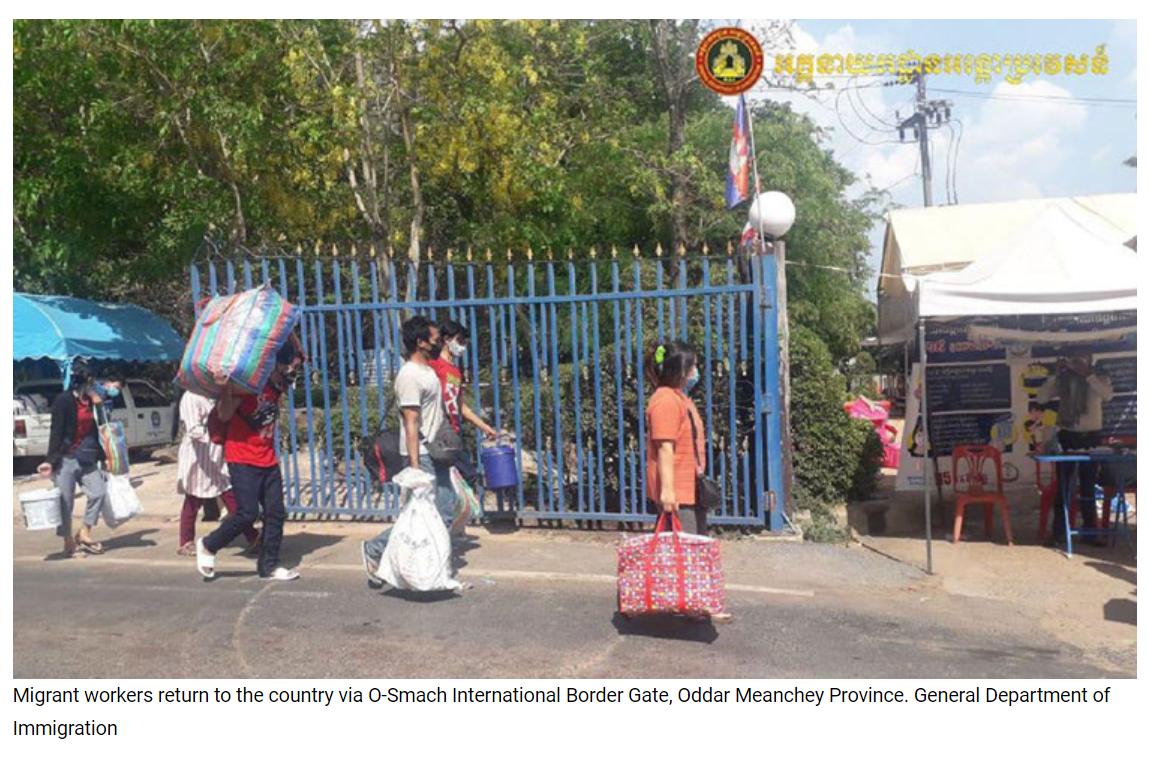Cambodia: Migrants’ home remittances dwindle
As the Coronavirus pandemic hits jobs and wages in many sectors of the global economy, a slowdown in the amount of money sent home by migrant workers looks increasingly likely, according to a report by World Economic Forum (WEF).
The report said that remittances shelter a large number of poor and vulnerable households, underpinning the survival strategies for more than 1 billion people.
According to the WEF, in 2019, an estimated 200 million people in the global migrant workforce sent home $715 billion. Of this, it’s estimated $551billion supported up to 800 million households living in low- and middle-income countries.
According to data from ACLEDA Bank Plc, Cambodian workers in South Korea have been affected by the pandemic.
The data shows that money sent bank home by only Cambodian workers from South Korea during the first quarter 2020 was $3.5 million with 1,373 transections, a decrease from $6.2 million with 2,270 transaction in the same period last year.
In Channy, president and group managing director of ACLEDA Bank told Khmer Times yesterday that the impact could not be avoided because of locked down cities, especially for workers.
“All manufacturing production chain activity has been reduced because of the pandemic, including in South Korea, where there are many Cambodian workers,” he said.
However, the data shows that all migrant workers saw their total remittances transferred from South Korea increase 28.3 percent during the period.
The data shows that money sent bank home by Cambodians working in South Korea during the first quarter of 2020 was $74.8 million with 11,647 transactions, an increase from $58.3 million and 17,181s transaction in the same period last year.
In Channy expressed optimism over the number of transfers in general. “The next quarter will be similar to this one,” he said.
Last year, 1.2 million Cambodian workers, working in Thailand, South Korea, Japan, Singapore, Hong Kong, Malaysia and Saudi Arabia sent home some
$2.8 billion as remittances, according to figures from
the Ministry of Labour and Vocational Training.
According to a report from the National Bank of Cambodia, in 2018, Cambodian migrants sent home about $1.4 billion in remittances. Of that amount, $53 million came from South Korea.
More than 36,000 Cambodians were recruited last year alone to work in countries such as Thailand, Malaysia, Singapore, Vietnam, Indonesia and China, according to the Foreign Affairs Ministry.
The World Bank projects that within five years, remittances will outstrip overseas aid and foreign direct investment combined, reflecting the extent to which global financial flows have been reshaped by migration.
But the social distancing and lockdown measures used to contain the spread of Coronavirus have led to a global economic slump, with the International Monetary Fund predicting the global economy will contract by 3 percent in 2020. These issues make this looming crisis particularly salient for the migrant workers who generate remittances.
Between 2008 and 2009 during the global financial crisis, remittance flows declined by 5.5 percent globally. Some parts of the world saw even more marked declines, according to the WEF.
Early predictions of the impact of Coronavirus on remittances detail significant declines. One study by the Inter-American Dialogue estimated there would be a 7 percent decline in remittances from the US, which will fall from by $76 billion to $70 billion, with receiving households from Mexico and Central America being most affected.
Source: https://www.khmertimeskh.com/50715088/migrants-home-remittances-dwindle/


 Thailand
Thailand




